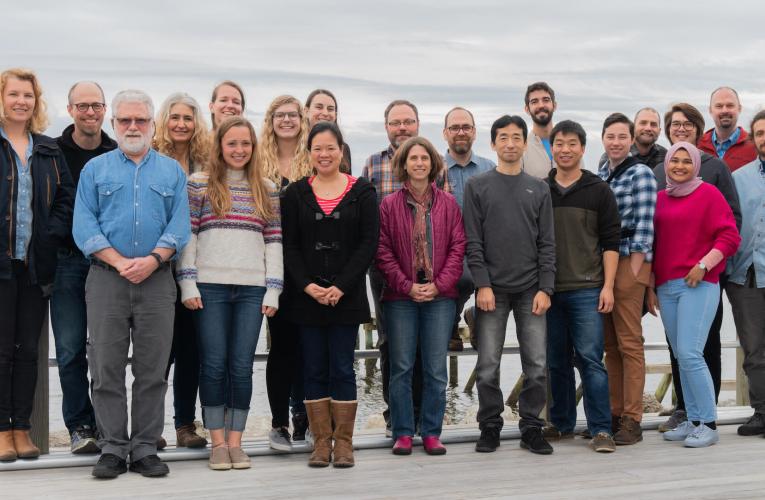Tim Lucas
(919) 613-8084
tdlucas@duke.edu
DURHAM, N.C. – As more businesses, governments and nonprofits seek employees with advanced expertise in energy, sustainability and other in-demand environmental fields, many Nicholas School doctoral graduates are opting to pursue careers outside academia.
Once there, however, they sometimes find that some of the skills most essential to their success fall outside the skill set they developed in their studies.
“They may wish they had sharper negotiation skills or better training in diversity and inclusion—things that matter tremendously in their workplace but maybe weren’t on their radar as students,” said Sarah Roberts, a doctoral student in marine geospatial ecology.
This summer, as a Reimagining Doctoral Education (RiDE) Fellow, Roberts investigated ways the Nicholas School and the Graduate School can better meet these students’ needs and prepare them for success.
She summarized her findings in a six-page executive summary and plans to meet with faculty during the coming year to discuss ways they can implement the report’s recommendations, either by offering new workshops and learning opportunities for doctoral students or—more often—enhancing existing opportunities and increasing students’ awareness of them.
“A lot of the time, I found that resources already exist, but students just aren’t aware of them or don’t understand why they’re important,” Roberts said. Many doctoral students are so focused on developing their analytical and technical skills that they don’t feel they have the time to develop soft skills like communications or leadership, she said. They may not yet even be thinking about careers outside academia and haven’t thought to ask their advisors what additional training they may need to succeed there.
To help answer that question, Roberts surveyed 70 Nicholas School PhD alumni—most of whom have management positions that include responsibility for supervising direct reports or hiring new team members, and many of whom work outside academia—to learn what professional skills they wish they had acquired as students but didn’t, and why.
She also asked them to identify the skills they look for when hiring recent PhDs as new employees.
The answers were eye-opening.
Topping the list of skills the alumni wish they had acquired as part of their doctoral education but didn’t were stakeholder management, negotiating, team leadership, budgeting, and diversity and inclusion training.
“Most of the alums said they didn’t seek out training in these skills because they either believed Duke did not offer it, they felt they didn’t have time for it, or it didn’t sound like something that would be beneficial to their careers,” Roberts said. “Things like negotiation skills, you don’t realize you need them until you’re in the thick of it.”
Topping the list of things they looked for in new hires were leadership, strong data analytical skills, and solid communications skills, including report writing, scientific writing, editing, and the ability to write for lay audiences.
In addition to identifying these skills—which would also be beneficial to students planning academic careers—Roberts’ executive summary includes five recommendations for how faculty advisors can raise awareness of their importance and make it more likely that students will take advantage of training opportunities.
“We don’t have to reinvent the wheel. In many cases, it can be as simple as adding a question about skills training or professional development into each student’s Individual Development Plan or identifying and promoting opportunities within and outside Duke that may help a student gain vital experience or credentials,” Roberts said.
Faculty response has been overwhelmingly positive so far, she added. “They say, ‘This is something we’re always talking about and it’s not surprising to us. But having the data helps us better understand what’s needed so we can work with our students to make the right decisions.’”
Cindy Van Dover, Harvey W. Smith Professor of Biological Oceanography, and Rachel Lo Piccolo, Marine Science & Conservation PhD program coordinator, served as advisors on Roberts’ RiDE Fellowship.
###

